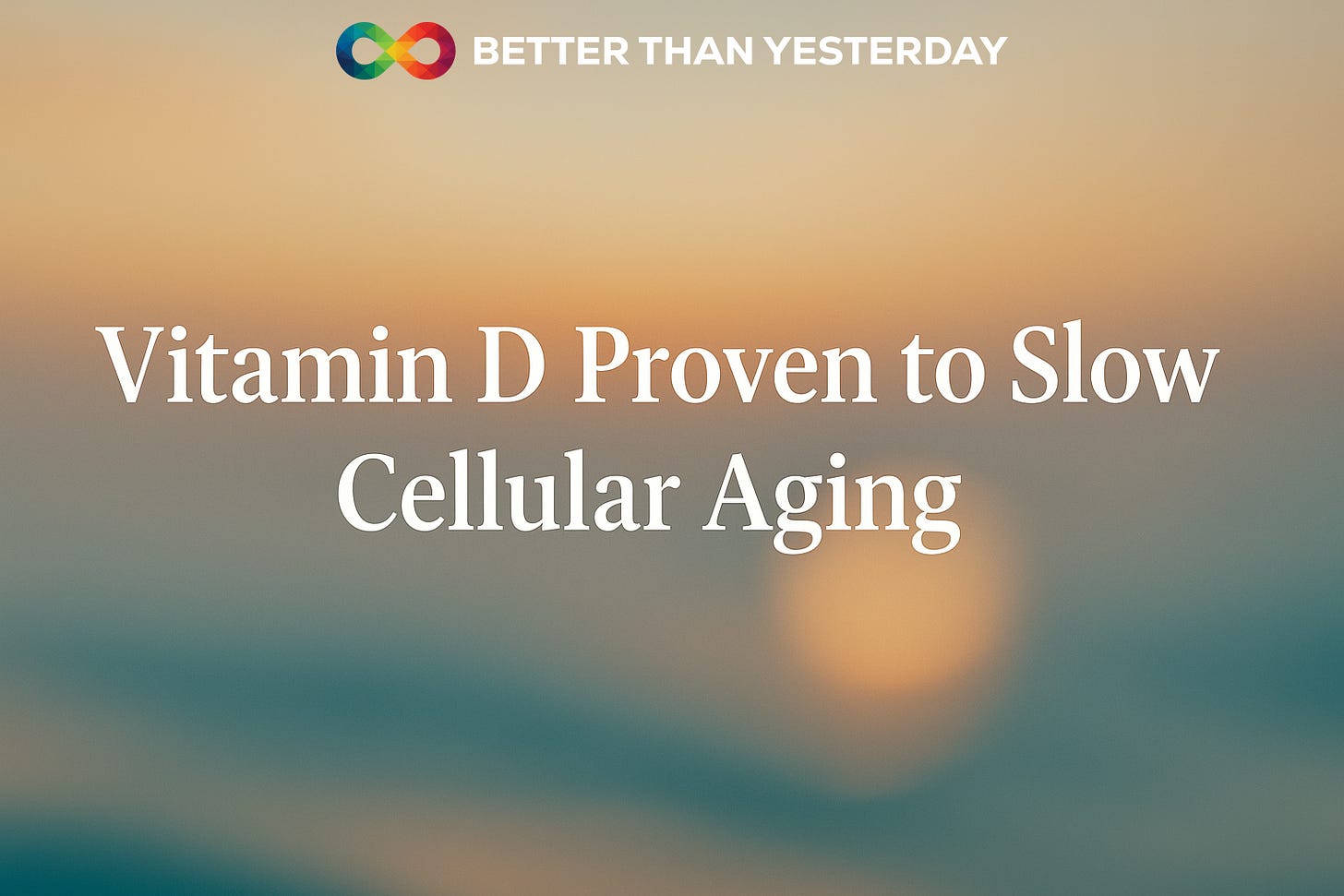This Vitamin Could Slow Your Cellular Aging by 3 Years
A brand new study just linked daily Vitamin D3 to longer telomeres and slower biological aging. Here's what it means and how to use it.
We all know Vitamin D matters for bone health, mood, and immunity. But what if it could also slow aging at the cellular level?
A new randomized controlled trial just gave us one of the clearest signs yet.
🧬 What the study found
Researchers followed more than 1,000 adults over four years. One group took 2,000 IU of Vitamin D3 every day. The other group got a placebo.
At the end of the trial, the Vitamin D group had significantly less telomere shortening in their white blood cells. On average, they preserved about 140 base pairs more than the placebo group.
That might not sound like much, but in biological terms, it's a big deal. It’s roughly equal to 3 years of slower aging at the cellular level.
Telomeres are like the plastic tips on your shoelaces. They protect your DNA. Every time your cells divide, those tips wear down. Shorter telomeres have been linked to everything from cancer and heart disease to cognitive decline.
✅ What we already knew about Vitamin D
Vitamin D has always been a biohacker favorite for good reason:
It helps regulate calcium and bone metabolism
It supports immune defense
It plays a role in reducing chronic inflammation
It’s involved in mood, hormone balance, and even sleep
But this new research gives us a direct aging marker to track. We're not just talking about feeling better. We're talking about a biological aging slowdown you can measure.
☀️ How to use this in biohacking
Here’s how to put the science into action:
1. Get safe sun exposure
Aim for 15 to 20 minutes of midday sun, exposing your arms and face. No sunscreen during that window.
2. Eat vitamin D-rich foods
Fatty fish like salmon and sardines. Egg yolks. Mushrooms grown under UV light.
3. Supplement smart
2,000 IU of Vitamin D3 per day is what the study used. For most adults, that’s a safe dose. Still, test your blood level of 25(OH)D to see where you stand. Ideal range is around 40 to 60 ng/mL. Use only Clean Vitamin D3 Supplements.
4. Don’t overdo it
If you go above 4,000 IU daily, monitor calcium and kidney markers. More isn't always better.
5. Stack it with movement and sleep
Vitamin D works best when you also move your body, sleep well, and manage stress. Aging is never one-dimensional.
📌 The bottom line
This is high-quality human data.
Vitamin D3 may help slow down one of the core mechanisms of aging, and it’s one of the easiest things to optimize today.
Cheap. Safe. Measurable.
Test. Adjust. Stay consistent.


